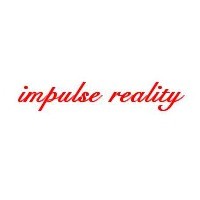Copy Link
Add to Bookmark
Report
AIList Digest Volume 5 Issue 280

AIList Digest Monday, 7 Dec 1987 Volume 5 : Issue 280
Today's Topics:
Queries - Semantic Network Software & CHAT80 &
Portable OPS-5 and Pseudo-Scheme & Expert System Liability,
Education - Robotic "kits" for Kids,
AI Tools - Expert System Tools for the Mac,
Philosophy - Neural Nets are Science
----------------------------------------------------------------------
Date: 4 December 1987, 21:24:47 LCL
From: KANNAN@SUVM
Reply-to: AIList@Stripe.SRI.Com
Subject: Semantic Network Software
I would like to have information on any software package (shells or
specific AI languages) that supports semantic networks. I am at present
using semantic networks as a documentation tool and would like to
represent the same using a shell.
Thanks
Reply to KANNAN at SUVM
Ramu Kannan
------------------------------
Date: Sat, 05 Dec 87 20:10:21 EST
From: ganguly@ATHENA.MIT.EDU
Subject: chat80
Hi !
I am interested in using the program CHAT80 developed
by Fernando Periera. I would appreciate very much if
someone could send me a copy of this program. I understand
that this program is documented in the following technical report:
Logic for Natural Language Analysis -
SRI Technical Note 275 - Frenando Periera
------------------------------
Date: 6 Dec 87 17:54:59 GMT
From: USENET Master <uunet!gould!ufcsv!news@RUTGERS.EDU>
Reply-to: mfi@beach.cis.ufl.edu (Mark Interrante)
Subject: Portable OPS-5 and Pseudo-Scheme
I am looking for two systems I saw referenced recently: Portable OPS-5 written
in CL and Pseudo-Scheme written in CL. If anyone has these or has pointers to
these, I would appriciate hearing about it.
Mark Interrante CIS Department
University of Florida
Internet: mfi@beach.cis.ufl.edu Gainesville, FL 32611
------------------------------
Date: 4 Dec 87 05:05:00 GMT
From: portal!cup.portal.com!Barry_A_Stevens@uunet.uu.net
Subject: Can you sue an expert system?
I am interested in the legal aspects of using expert systems.
Consider, and please comment on, this scenario.
* * * * * * * * * * *
A well-respected, well-established expert systems(ES) company constructs
an expert financial advisory system. The firm employs the top ES
applications specialists in the country. The system is constructed with
help from the top domain experts in the financial services industry. It
is exhaustively tested, including verification of rules, verification of
reasoning, and further analyses to establish the system's overall value.
All results are excellent, and the system is offered for sale.
Joe Smith is looking for a financial advisory system. He reads the sales
literature, which lists names of experts whose advice was used when
building the system. It lists the credentials of the people in the
company who were the implementors. It lists names of satisfied users,
and quotes comments that praise the product. Joe wavers, weakens, and
buys the product.
"The product IS good,", Joe explains. "I got it up and running in less
than an hour!" Joe spends the remainder of that evening entering his own
personal financial data, answering questions asked by the ES, and
anticipating the results.
By now, you know the outcome. On the Friday morning before Black Monday,
the expert system tells Joe to "sell everything he has and go into the
stock market." ESs can usually explain their actions, and Joe asks for
an explanation. The ES replies "because ... it's only been going UP for
the past five years and there are NO PROBLEMS IN SIGHT."
Joe loses big on Monday. Since he lives in California, (where there is
one lawyer for every four households, or so it seems, and a motion
asking that a lawsuit be declared frivolous is itself declared
frivolous) he is going to sue someone. But who?
The company that implemented the system?
The domain experts that built their advice into the system?
The knowledge engineers who turned expertise into a system?
The distributor who sold an obviously defective product?
Will a warranty protect the parties involved? Probably not. If real
damages are involved, people will file lawsuits anyway.
Can the domain experts hide behind the company? Probably not. The
company will specifically want to use their names and reputations as the
source of credibility for the product. The user's reaction could be,
"There's the so-and-so who told me to go into the stock market."
Can the knowledge engineers be sued for faulty construction of a system?
Why not, when people who build anything else badly can be sued?
How about the distributor -- after all, he ultimately took money from
the customer and gave him the product.
* * * * * * * * * * *
I would be very interested in any of your thoughts on this subject. I'd
be happy to summarize the responses to the net.
Barry A. Stevens
Applied AI Systems, Inc.
PO Box 2747
Del Mar, CA 92014
619-755-7231
------------------------------
Date: 4 Dec 87 19:47:27 GMT
From: pitstop!sundc!potomac!garybc@sun.com (Gary Berg-Cross)
Subject: Robotic "kits" for kids
Does anybody have experience with robotic kits appropriate for
kids 9-14? I'm thinking of robot arms up to more complete systems that
might be assembled over a period of weeks and serve to introduce one
or two younsters to the engineering issues before they enjoy the
fruits of their work. Do any worthwhile products exist out there and
are there ones that might be in the price range of start-up computer
system costs?
Expereiences and references would be appreciated.
--
Gary Berg-Cross. Ph.D. (garybc@Potomac.ADS.COM)
Advanced Decision Systems vi .signature
ZZ
a
------------------------------
Date: 5 Dec 87 07:29:38 GMT
From: glacier!jbn@labrea.stanford.edu (John B. Nagle)
Subject: Re: Robotic "kits" for kids
Edmund Scientific, of Barrington, NJ, offers a number of robot
devices in kit form. Prices are in the $30-50 range.
Fischerteknik, the magnificent German construction set, now offers
a line of electrical, pneumatic, and electronic components intended for
the building of robots and other servomechanisms. For the very
bright, self-directed child. Obtain the catalog at better toy stores.
$50 and up, far up.
John Nagle
------------------------------
Date: 6 Dec 87 17:39:24 GMT
From: gleicher@cs.duke.edu (Michael Gleicher)
Subject: Re: Robotic "kits" for kids
When I was about that age I had a lot of fishertechnic stuff. It was neat
because you could build things that really worked, with exectric motors and
gear drives and stuff.
A lot of the stuff I had were strange gear boxes, strain gauages,
differentials, or other things an 11 year old kid would understand. My dad (a
mechanical engineers) liked these toys as much as I did.
A few years back at a computer show (I think it was the Trenton Computer Fair)
I saw some rather impressive demonstrations of robots build with the stuff.
The small electric motors were easy to interface with computers.
Unfortunately, these constructions were build out of a LOT of parts (and these
things are EXPENSIVE!!! they were expensive 10 years ago, I'd hate to see what
they cost now) and were very complex (they were designed and built by
engineers, not by kids).
I don't think if you buy your kids a whole bunch of fishertechnic stuff they
will be building robots. But they will be building other things, and probably
having as much fun with it. It is my personal philosophy (I am NOT a
psychologist) that things like this help develop not only an interest in
mechanical things, but also develop skills like mathematical ability, logical
reasoning, design, planning and the like. Once these things are developed,
you're ready to build robots.
One last comment: Fishertechnic pieces are EXPENSIVE (or at least were). There
might be cheaper alternatives (what ever happened to old fashioned erector
sets? (with the metal pieces and minature bolts). these might be even better
for building mini-robots).
Mike
Michael Lee Gleicher (-: If it looks like I'm wandering
Duke University (-: around like I'm lost . . .
E-Mail: gleicher@cs.duke.edu)(or uucp (-:
Or P.O.B. 5899 D.S., Durham, NC 27706 (-: It's because I am!
------------------------------
Date: 6 Dec 87 18:17:11 GMT
From: Robert Stanley <roberts%cognos%math.waterloo.edu@RELAY.CS.NET>
Reply-to: Robert Stanley
<roberts%cognos%math.waterloo.edu@RELAY.CS.NET>
Subject: Re: ES tools for Mac
To the moderator:
My apologies for sending this to your group, but I am unable to persuade my
mailer that cive.ri.cmu.edu is a viable address on this unsupported Sunday
afternoon. It then struck me that perhaps this information might be of
interest to the group after all; I'll leave you to make that decision. When
support arrives on Monday, I'll get this mailed directly to Mary.Lou.Maher.
In article <8712010829.AA13510@ucbvax.Berkeley.EDU>
Mary.Lou.Maher@CIVE.RI.CMU.EDU writes:
>I have to give a tutorial and workshop on Expert Systems at an engineering
>conference and would like to use the Mac since it has relatively little
>start up time. I am interested in simple rule based tools and object
>oriented tools that run on a Mac. Simplicity is more important
>than sophistication. Can anyone help? Mary Lou Maher maher@cive.ri.cmu.edu
There are a number of possibilities, depending on how much you wish to achieve,
how big a Macintosh you have available, and how much you want to spend. You
might also benefit from repeating your posting in comp.sys.mac, which is a very
lively group featuring some knowledgeable players.
With respect to Object-Oriented programming:
* Probably the most interesting (and cheapest) approach is to use HyperCard,
which comes free with all new Macs, and costs $49 (US) otherwise. This
has a true object-oriented language named HyperTalk very well integrated
into its environment. Drawback: needs minimum 128K ROMs, 1 Megabyte RAM,
and is difficult to put to work without a hard disk. The language is
somewhat muddled, but quite powerful and *very* easy to use.
Consult your local Apple dealer.
* Other object-oriented possibilities include SmallTalk, available cheaply
from APDA, and *much* more expensively from Parc Place Systems (I am not
sure that they have brought their Mac product to market yet); the language
NEON (a sort of cross between SmallTalk and FORTH) from Kriya Systems; and
MacScheme, if you want to step right down to the nitty-gritty level.
Consult a month's worth of the Mac news-stand publications.
With respect to shells and rule-based programming:
* The hands-down winner in this field is NEXPERT Object from Neuron Data, but
it is expensive, and runs best in large environments. This is a real tool,
aimed at implementing real solutions to real problems, but I suspect that
it needs quite some practice to master. On a Mac II with colour it runs
rings around the VAX GPX II version.
Neuron Data: 444 High Street, Palo Alto, CA 94301 (415) 321-4488
* At the other end of the scale, there is a micky-mouse implementation of
OPS/5 for the Mac, but it only allows around 50 rules! I am sorry, but
I have no reference to hand.
To the best of my knowledge, there has been little or no attempt on the part of
any of the innumerable shell-builders in the IBM-PC world to port their
products to the Mac. This has left the Mac world pretty much devoid of simple
tools in this class.
Further possibilities:
* LPA Associates have an acceptable implementation of Micro-Prolog for the
Mac, which would give you access to tools such as APES (Augmented Prolog
for Expert Systems).
* Advanced AI Systems produce AAIS-Prolog, which appears to be currently the
best Prolog implementation for the Mac. By no means perfect, but
definitely practical.
I hope these suggestions will go part way towards solving your problem. If you
need more detailed references, e-mail me or telephone (we are on EST).
Robert_S
--
R.A. Stanley Cognos Incorporated S-mail: P.O. Box 9707
Voice: (613) 738-1440 (Research: there are 2!) 3755 Riverside Drive
FAX: (613) 738-0002 Compuserve: 76174,3024 Ottawa, Ontario
uucp: decvax!utzoo!dciem!nrcaer!cognos!roberts CANADA K1G 3Z4
------------------------------
Date: 5 Dec 87 07:45:46 GMT
From: glacier!jbn@labrea.stanford.edu (John B. Nagle)
Subject: Neural nets are science
I've been implementing Rumelhart's learning technique, and
observing how fast it learns, what factors affect the learning rate,
and how my results compare with his. Suddenly it struck me - I'm
repeating someone else's experiment, and comparing my data with his.
It's rare in this field to be able to repeat the experiments of
another and actually compare numerical results. In this area, we
can do it. We can conduct repeatable experiments and objectively
validate the work of others. This is real science. Instead of
arguing, we converge on accepted, repeatable results. The
scientific method works here.
It's interesting that in the area of AI where things seem most complex,
chaotic, and noisy, one can do good experimental science. This field
may move forward rapidly.
John Nagle
------------------------------
End of AIList Digest
********************






















